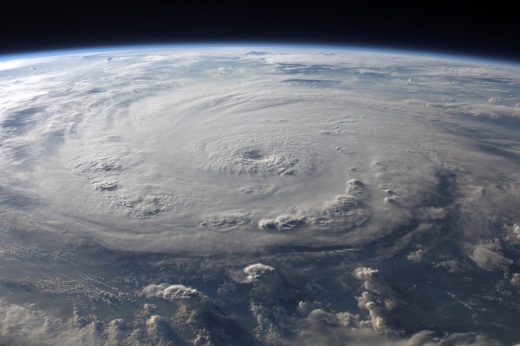In addition to devastating public infrastructure and property, hurricanes are potentially life-threatening for communities near the Texas Gulf Coast. Storm surge is historically the leading cause of hurricane-related deaths in the United States, according to www.ready.gov, a website from the U.S. Department of Homeland Security.
“The best time to start preparing is before the threat is imminent. Knowing what tools are available to you before a disaster will enable you and your family to make the best choices during a hurricane,” said Tina Petersen, executive director of the Harris County Flood Control District, in a news release from the district.
If you’re unsure how to prepare for a hurricane, here are a few tools and resources to consider.
Understand the area’s risk
Just because residents don’t live near the coast doesn’t mean communities aren’t at risk for hurricane damage. A hurricane’s impact can be felt hundreds of miles inland, where it’s possible for rain, wind, water and even tornadoes to cause damage, according to the National Hurricane Center. Tools, such as the National Oceanic and Atmospheric Administration’s hurricane tracker, are helpful for looking at the routes of past and current storms to see if your area is at risk.
Know evacuation routes
Should you have to evacuate on short notice, it’s good practice to be aware of your area’s evacuation routes so you have a solid plan in place before the crisis hits, www.ready.gov suggests. Download the Federal Emergency Management Agency app to view a map of nearby emergency shelters. As a bonus, the app also provides real-time National Weather Service alerts for up to five locations at a time.
Fortify homes
It’s smart to plan ahead by fortifying your home against damage that hurricanes cause by taking precautions, such as decluttering your gutters, bringing outdoor furniture inside and building hurricane shutters. Debris damage to natural gas meters is an often overlooked risk people should be aware of, said Safeena Walji, Texas Gas Service public relations manager, in an interview with Community Impact.
“It could result in an outage to either your home or many homes in your area,” Walji said. “If there’s a potential natural gas leak, it could result in having to shut off your gas while it gets repaired.”
Texas Gas Service, which is Texas’ third-largest natural gas distribution company, recommends checking around your gas meter to make sure there aren’t any items, such as trash cans, that could be blown in by wind or flooding.
Gather supplies
During and after a hurricane, you may not have access to basic supplies for days or even weeks, so it’s best to put together an emergency kit before the storm strikes. Ready.gov recommends having the following items on hand:
- One gallon of water per day, per person
- At least a several-day supply of nonperishable food
- Battery-powered or hand crank radio and an NOAA Weather Radio with tone alert
- Flashlight
- First aid kit
- Extra batteries
- Whistle, to signal for help
- Dust mask, to help filter contaminated air
- Plastic sheeting and duct tape
- Moist towelettes, garbage bags and plastic ties
- Wrench or pliers, to turn off utilities
- Manual can opener
- Local maps
- Cell phone with chargers and a backup battery





